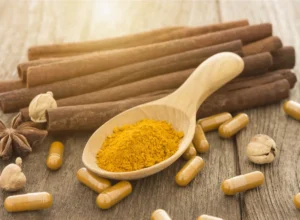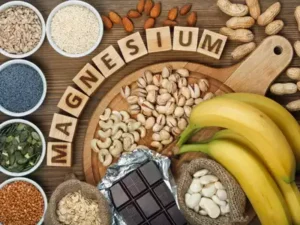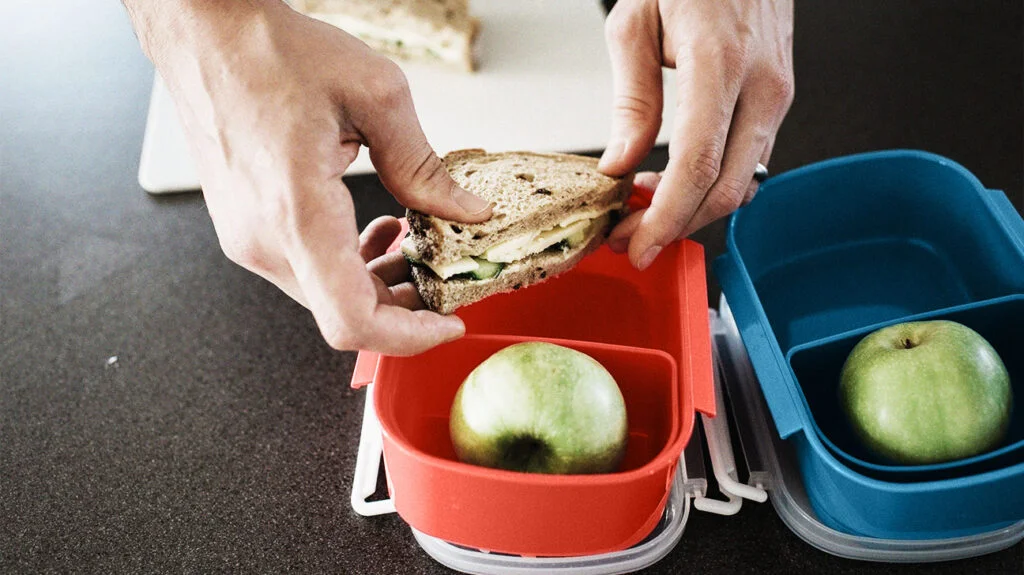Home remedies, when used wisely and in conjunction with professional medical advice, can play a pivotal role in regulating blood sugar levels. This blog aims to explore a variety of accessible, natural home remedies to lower blood sugar that have been recognized for their potential. From dietary adjustments to lifestyle changes and herbal supplements, we’ll delve into how these remedies work and how you can incorporate them into your daily routine to support your health.
Contents
What Are The Best Home Remedies To Lower Blood Sugar?
 Managing blood sugar levels naturally can be an important adjunct to medical treatment for people with diabetes or those looking to maintain healthy blood sugar levels. Here are some of the best home remedies to lower blood sugar:
Managing blood sugar levels naturally can be an important adjunct to medical treatment for people with diabetes or those looking to maintain healthy blood sugar levels. Here are some of the best home remedies to lower blood sugar:
Cinnamon
Cinnamon is more than just a spice that adds flavor to your dishes; it’s a potent tool in the management of blood sugar levels. Research has demonstrated that cinnamon can significantly reduce fasting blood sugar levels and improve insulin sensitivity. The active components in cinnamon, such as cinnamaldehyde, appear to enhance insulin signaling and facilitate glucose uptake by cells, mimicking the action of insulin itself. Incorporating just half a teaspoon of cinnamon into your daily diet, whether sprinkled over oatmeal, added to smoothies, or used in baking, can aid in blood sugar regulation.
Fenugreek Seeds
Fenugreek seeds are a powerhouse of soluble fiber. This plays a critical role in blood sugar management. The fiber in fenugreek slows down the digestion and absorption of carbohydrates, preventing sudden spikes in blood sugar levels post-meals. You can benefit from fenugreek by soaking the seeds overnight and consuming them on an empty stomach in the morning or by incorporating fenugreek powder into your meals. This remedy has been particularly noted for its effectiveness in managing Type 2 diabetes, improving fasting blood sugar levels, and enhancing overall glucose tolerance.
Apple Cider Vinegar
The acetic acid in ACV appears to reduce certain enzymes in the stomach, slowing down carbohydrate digestion and thus preventing blood sugar spikes. When taking ACV, it’s important to dilute it with water to prevent tooth enamel erosion or throat irritation. A typical dose might include one to two tablespoons of ACV in a large glass of water before meals or at bedtime. Always start with a small dose to assess your tolerance.
Bitter Melon
Bitter melon, as the name suggests, has a bitter taste but is a potent natural remedy for lowering blood sugar levels. It contains three active substances with anti-diabetic properties that mimic insulin, help in glucose uptake by cells, and improve glucose tolerance. Bitter melon can be consumed in various forms, including as a vegetable in cooking, as juice, or as a supplement in capsules. Its effects on lowering blood sugar are so significant that it’s often called “plant insulin.”
Chromium
Chromium is a trace element essential for the metabolism of fats and carbohydrates, and it enhances the action of insulin. Foods rich in chromium, such as broccoli, free-range eggs, nuts, and green beans, can help improve insulin sensitivity and thus aid in better blood sugar control. While chromium supplements are available, getting chromium from natural food sources ensures a balanced intake and minimizes the risk of consuming too much. It could have adverse effects.
Magnesium-Rich Foods
 Magnesium plays a crucial role in over 300 enzymatic reactions in the body, including the metabolism of glucose and the synthesis of insulin. Insufficient magnesium levels have been linked to a higher risk of developing Type 2 diabetes. Including magnesium-rich foods in your diet, like spinach, almonds, and avocados, can help maintain optimal blood sugar levels and support overall health. Moreover, studies suggest that magnesium supplementation may improve insulin sensitivity in individuals with low magnesium status.
Magnesium plays a crucial role in over 300 enzymatic reactions in the body, including the metabolism of glucose and the synthesis of insulin. Insufficient magnesium levels have been linked to a higher risk of developing Type 2 diabetes. Including magnesium-rich foods in your diet, like spinach, almonds, and avocados, can help maintain optimal blood sugar levels and support overall health. Moreover, studies suggest that magnesium supplementation may improve insulin sensitivity in individuals with low magnesium status.
Aloe Vera
This succulent plant contains compounds such as phytosterols that have anti-hyperglycemic effects, particularly beneficial for people with type 2 diabetes. Consuming aloe vera juice or taking supplements can help improve fasting blood glucose levels and stabilize overall blood sugar. It’s thought that aloe vera enhances insulin sensitivity and improves glucose metabolism. However, it’s important to approach aloe vera intake with caution, especially in juice form, as it can also act as a laxative.
Berberine
Berberine is a compound found in several plants such as goldenseal, barberry, and Oregon grape, and it has been extensively studied for its potent blood sugar-lowering effects. It works by improving insulin sensitivity and increasing glycolysis, helping the body break down sugars inside cells more effectively. Berberine also reduces sugar production in the liver and can help in weight loss. This is beneficial for managing diabetes. Despite its benefits, berberine should be used under the supervision of a healthcare provider.
Regular Exercise
Engaging in regular exercise is one of the most effective ways to improve insulin sensitivity and lower blood sugar levels. Physical activity encourages muscles to use glucose for energy, reducing blood sugar in the process. A mix of aerobic exercises, such as walking, swimming, or cycling, and resistance training, like weight lifting, can be particularly effective. It’s important to find a routine that is enjoyable and sustainable, aiming for at least 150 minutes of moderate to vigorous exercise each week, as recommended by health guidelines.
Stay Hydrated
Drinking enough water is essential for overall health and can help manage blood sugar levels. Proper hydration helps the kidneys flush out excess blood sugar through urine and keeps the blood’s hydration level balanced, reducing the risk of high blood sugar levels. Opting for water and other non-caloric beverages over sugary drinks can significantly impact blood sugar management. Moreover, staying hydrated can help avoid dehydration, which is particularly important for people with diabetes, as high blood sugar levels can lead to increased urination and fluid loss.
Stress Management
Stress plays a significant role in blood sugar levels. When you’re stressed, your body releases hormones such as cortisol and adrenaline, which can cause blood sugar levels to rise. Implementing stress reduction techniques like yoga, meditation, deep breathing exercises, or even pursuing hobbies can help lower stress hormones and, consequently, stabilize blood sugar levels. Finding effective ways to manage stress is not only beneficial for your mental health but can also play a crucial role in managing conditions like diabetes.
Adequate Sleep
Lack of sleep or poor sleep quality can affect the body’s regulation of blood sugar and reduce insulin sensitivity. This disruption can lead to higher fasting blood sugar levels and may increase the risk of developing type 2 diabetes. Ensuring 7-9 hours of quality sleep per night can help maintain healthy blood sugar levels, improve insulin sensitivity, and support overall health. Strategies to improve sleep include maintaining a regular sleep schedule, creating a restful environment, and avoiding caffeine and electronic devices before bedtime.
Incorporating these home remedies to lower blood sugar can provide a supportive role. However, it’s vital to remember that these remedies should complement, not replace, traditional medical treatments and advice. Always consult with healthcare professionals before making significant changes to your lifestyle.
Does Lemon Water Reduce Blood Sugar?
 Lemon water is a popular home remedy that some people use to support overall health, including blood sugar management. While there’s no direct evidence to suggest that lemon water can significantly lower blood sugar levels, the drink may offer indirect benefits that could be helpful for people managing diabetes or prediabetes.
Lemon water is a popular home remedy that some people use to support overall health, including blood sugar management. While there’s no direct evidence to suggest that lemon water can significantly lower blood sugar levels, the drink may offer indirect benefits that could be helpful for people managing diabetes or prediabetes.
Here’s how lemon water might have a positive impact on blood sugar levels:
- Low in Calories and Carbohydrates: Lemon water is a low-calorie and low-carbohydrate drink. And, making it a good alternative to sugary beverages or juices that can spike blood sugar levels.
- Hydration: Staying well-hydrated is important for maintaining normal blood sugar levels. Drinking lemon water can help meet your hydration needs. This may indirectly help manage blood sugar.
- Glycemic Control: Some studies suggest that the soluble fiber and vitamin C found in lemons could help in controlling blood sugar levels. This works by improving insulin sensitivity and slowing down the digestion of sugars and starches.
- Antioxidant Effects: Lemons are a good source of vitamin C and other antioxidants. It can reduce oxidative stress and inflammation in the body. Chronic inflammation and high levels of oxidative stress are linked to an increased risk of diabetes and poor glycemic control.
Although drinking lemon water may offer these potential benefits, it should not be considered a standalone solution for reducing blood sugar levels. It’s best used as part of a balanced diet and healthy lifestyle.
Conclusion
In conclusion, managing blood sugar levels can be effectively supported through a combination of natural home remedies alongside traditional medical treatments. From incorporating cinnamon and fenugreek seeds into your diet to staying hydrated and managing stress, each strategy offers its own set of benefits that can help in controlling blood sugar levels. While remedies like lemon water may not directly lower blood sugar, they contribute to a healthier lifestyle that supports blood sugar management.
It’s important to remember, however, that these home remedies to lower blood sugar should complement, not replace, the advice and treatments prescribed by healthcare professionals. Do you want to get rid of diabetes? Join our online diabetes treatment program and reverse Diabetes naturally through lifestyle changes such as a Personalized Diet plan, Exercise, Yoga, dieticians, and health coaches.

